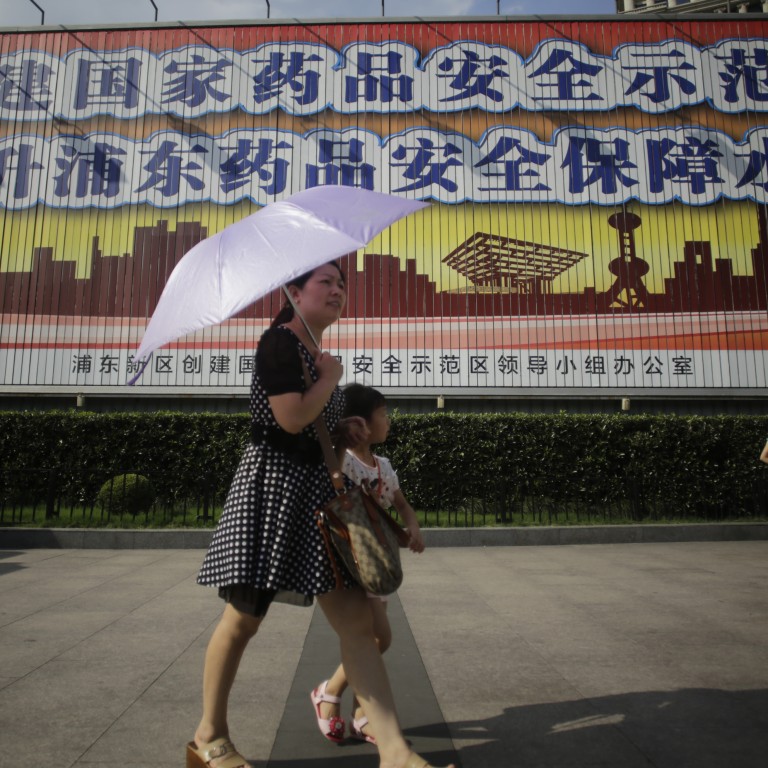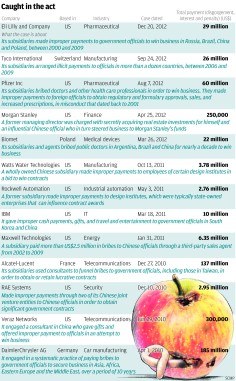
Cross-border collaboration can spur China's fight against corporate graft
Wang Zhile says China's fight against corruption involving multinational corporations can go even further when it joins hands with other nations and agencies that are committed to the cause
The Chinese authorities' investigation of GlaxoSmithKline for suspected corruption on the mainland has caused concern for a number of reasons.

Multinational corporations are well known for their advanced products, high-quality services and operational compliance. The scale of the corruption that GSK now stands accused of is a serious violation of the code of conduct for multinationals.
Secondly, many ordinary Chinese who struggle with high medical costs have long been angry that some pharmaceutical companies appear to be colluding with medical institutions to raise drug prices. This means people are highly sensitive to the bribery accusations levelled at GSK.
Thirdly, since the 18th party congress, the government's stated resolve to tackle corruption has raised public expectations for action. A case of such rife misconduct would naturally arouse great attention.
According to the public security authorities, a Chinese subsidiary of the British drug giant allegedly used a network of travel agencies to give millions in kickbacks to government officials, a small number of drug trade associations, medical foundations, hospitals and doctors, in order to boost drug sales and raise prices.
Employees of GlaxoSmithKline (China) Investment were also found to have used false valued-added tax receipts, fake invoices from travel agencies for trips, and other fake receipts for cash redemption or rebates. The authorities said the crimes involved a large number of people and went on for a substantial period of time, and that there is sufficient evidence to prove that some senior GSK China Investment executives and travel agency employees were guilty of bribery and tax evasion.
Investigators said some GSK executives abused their positions to take rebates through travel agencies and bribes through the sponsorship of conference attendance.
In the past, bribery involving multi-nationals in China was usually dealt with by foreign government agencies. But in this case, it was the Chinese authorities that acted on the tip-offs they received. The joint investigation by public security authorities in Shanghai, Changsha , Zhengzhou and other mainland cities showed the government's determination to fight corruption and improve the business environment.
The misconduct of senior executives at GSK China Investment has aroused public indignation and criticism. This reflects the public's zero tolerance for corruption and the people's strong support for investigations into corruption perpetrated by multinationals.
The global reach of multinational companies today has made commercial corruption a global scourge.
In recent years, the United Nations and other international organisations and developed countries have stepped up efforts to combat corruption at these corporations.
The US Department of Justice and the Securities and Exchange Commission, for example, have taken errant multinationals to task in accordance with the Foreign Corrupt Practices Act. According to data on the commission's website, US authorities had acted against scores of companies in recent years.
Noticeably, a significant number of them committed their crimes in China. According to the website, in the 10 years since 2002, 24 such multinationals have been disciplined by US judicial authorities. Some are household names, such as Siemens, DaimlerChrysler, IBM, Lucent and Pfizer. The chart on the right lists the cases in the three years to 2012.
Interestingly, commercial bribery appears to have badly hit the pharmaceutical and medical equipment industry. Five out of the 24 companies accused of commercial bribery are from the industry.
In recent years, Chinese judicial authorities have also dealt with corruption involving multinationals. In 2009, four Rio Tinto employees were arrested in Shanghai for commercial espionage and bribery charges involving millions of yuan.
The fact that China has become a hotbed for corruption perpetrated by multinationals is of grave concern.
In the wake of the global financial crisis, both advanced economies and international organisations such as the UN and the Organisation for Economic Co-operation and Development have stepped up their efforts to fight corporate corruption. In particular, the last of the UN Global Compact's 10 principles underlines the resolve to fight corruption.
China must heed this international effort to root out corruption, especially at a time when more and more Chinese companies are making their mark on the world stage.
We must learn from the experiences of others in fighting corporate corruption, strengthen international co-operation, curb commercial bribery and clean up the business environment in our country.
As part of their investigation into wrongdoing, mainland authorities should seek the support and involvement of the parent company of the multinational in question, as well as the relevant national authorities. Often, such crimes are carried out by the company's subsidiaries or representatives in several countries, without the knowledge of its headquarters.
In seeking help, Chinese authorities would find ready allies equally committed to fighting corruption. Through co-operation, China would be able to fight corporate corruption more effectively, and contribute to worldwide efforts dedicated to the same, with the goal of cleaning up the international business environment.
